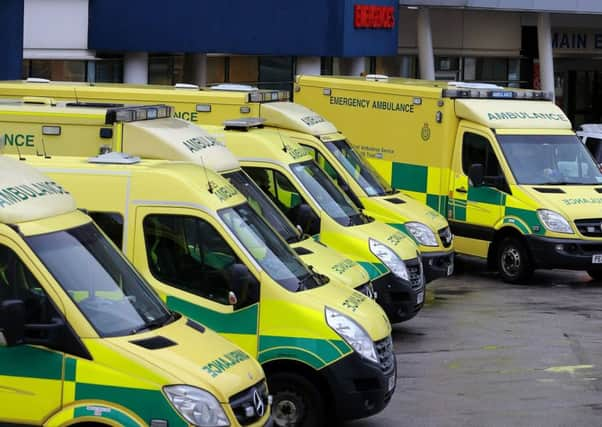Stroke sufferers in Nene have to wait over hour to get to hospital by ambulance


Experts said the priority was to get the patient to a specialist stroke centre, even if that was further away than the nearest standard hospital.
After calling 999, patients had to wait on average an hour and 29 minutes to get to an acute stroke centre in August.
Advertisement
Hide AdAdvertisement
Hide AdThe Nene Clinical Commissioning Group area is served by the East Midlands Ambulance Service trust.
The trust’s ambulances, which cover 22 CCGs in the East Midlands , helped 663 patients who had an initial diagnosis of stroke.
One in 10 had to wait two hours and 18 minutes to reach hospital.
A stroke happens when a blood vessel to the brain gets clogged or bursts, and cuts off blood and oxygen.
Advertisement
Hide AdAdvertisement
Hide AdNationally, patients waited on average an hour and 11 minutes to get to hospital.
Alexis Kolodziej, of the Stroke Association, said: “The faster a stroke patient can receive specialist treatment the more likely they will survive and recover.
“Evidence shows that patients get better treatment and have better outcomes when they can be taken by ambulance to a larger, comprehensive stroke centres of excellence.
“In most cases, it is better for patients to travel slightly further to reach these centres than to go to a closer hospital that doesn’t offer specialist and comprehensive stroke care.”
Advertisement
Hide AdAdvertisement
Hide AdOnce at the stroke center, patients had to wait up to two hours and 27 minutes minutes for an X-ray scan.
This is crucial to determining the cause of the stroke and decide on the treatment.
Professor Nilesh Samani, medical director at the British Heart Foundation, said: “Stroke is the third biggest killer in the UK and causes over 36,000 deaths each year.
“Pioneering treatments are increasingly available for people who have had a stroke, which have been proven to save lives and reduce disability.
Advertisement
Hide AdAdvertisement
Hide Ad“They are most effective, however, when patients are treated at an early stage, and this underlines the need for strokes to be treated as swiftly as possible. For emergency services, stroke should have the same priority as heart attacks.”